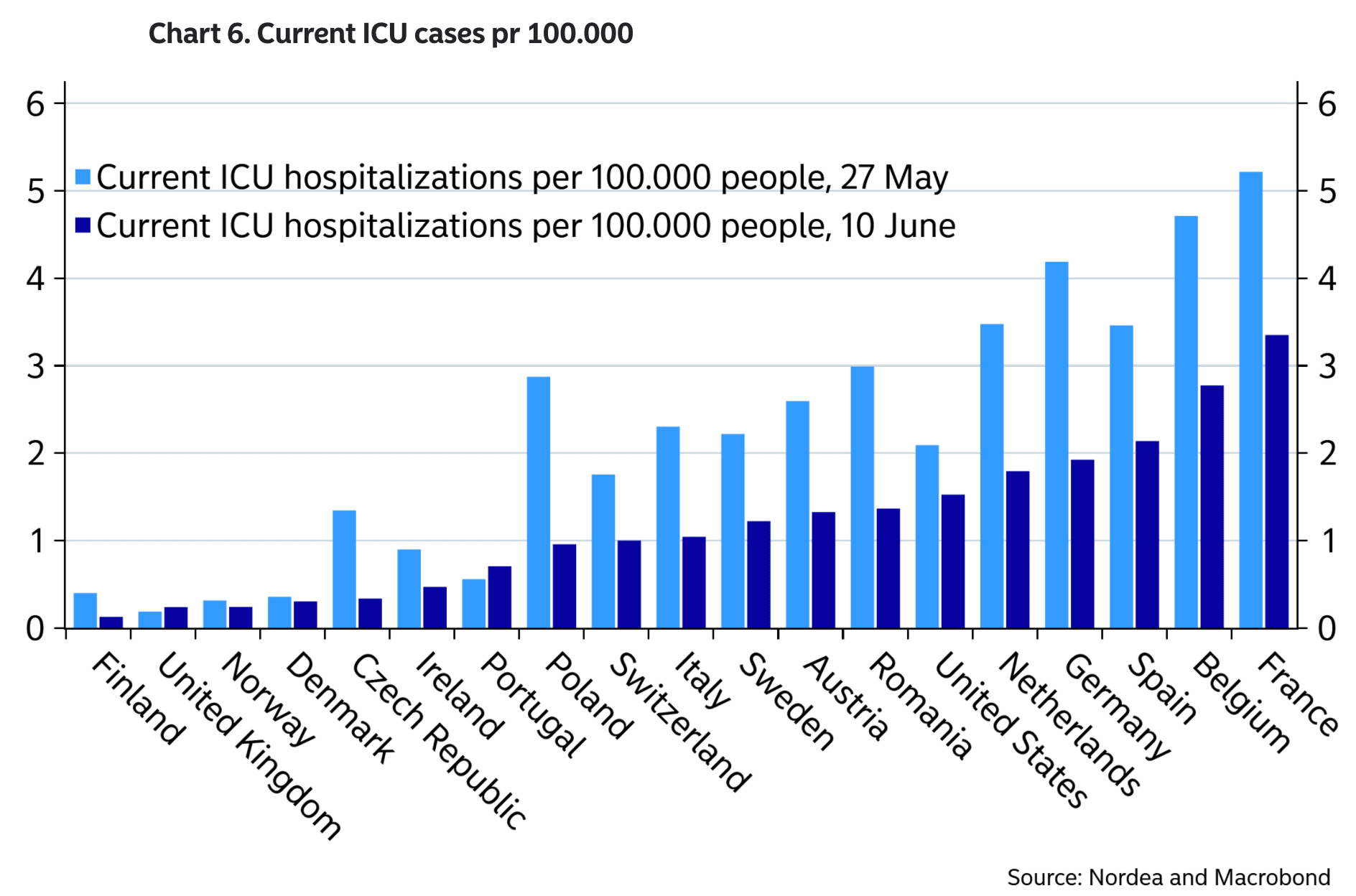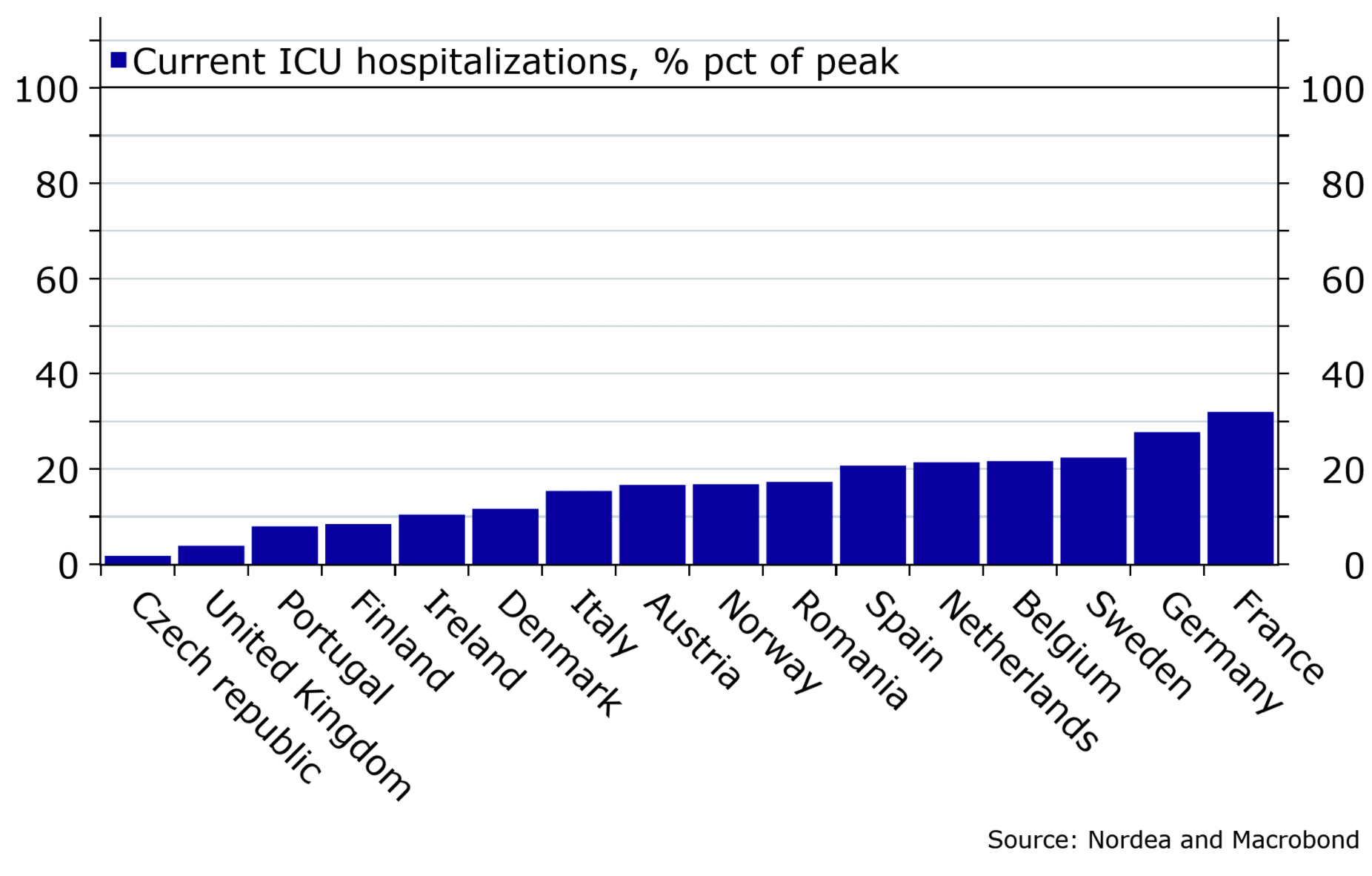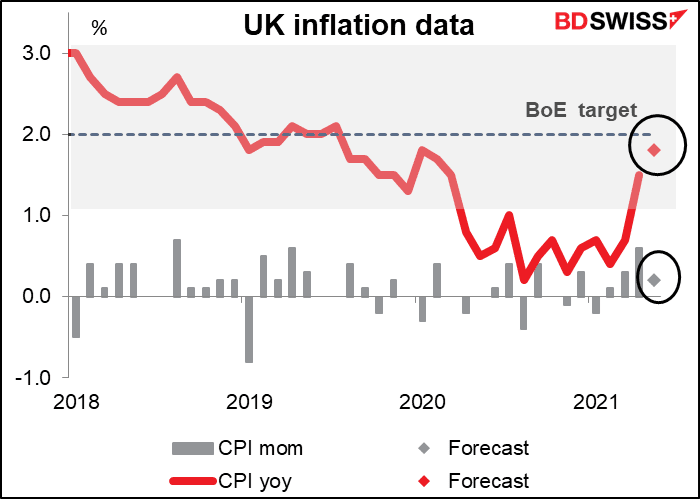Pound Sterling Week Ahead Forecast: June 21 Decision + Economic Data to Take Centre Stage, But Big Moves Against Euro and Dollar Unlikely
- Written by: Gary Howes
- Govt to make call on June 21 'freedom day'
- Watch inflation data out Wednesday
- GBP maintains tight ranges
- One analyst forecasts upside into year-end

Above: File image of Prime Minister Boris Johnson. Image courtesy of Gov.uk
- Market rates at publication: GBP/EUR: 1.1660 | GBP/USD: 1.4111
- Bank transfer rates: 1.1430 | 1.3816
- Specialist transfer rates: 1.1578 | 1.4012
- Get a bank-beating exchange rate quote, here
- Set an exchange rate alert, here
The focus for the British Pound in the coming week includes a Monday call by the UK government on whether or not to fully relax Covid restrictions on June 21 followed by a slew of economic data releases due on Tuesday, Wednesday and Friday.
All eyes are on Prime Minister Boris Johnson who will on Monday say whether the final stage of England's exit from Covid restrictions will go ahead on June 21.
Expectations for such an outcome have however diminished over the past week given the sharp rise in Covid-19 infection rates and signs that hospitalisations are starting to creep up once more.
Heading into the Monday announcement it would appear foreign exchange rate markets have priced in a delay to unlocking and therefore the announcement will unlikely provide the kind of shock typically required to move the Pound lower.
Instead, it would appear the surprise lies with the government actually going ahead with unlocking, and this could provide some support to Sterling as a result as it implies the economy can get back to pre-Covid levels sooner.
"A delay is possible, but a reason to sell GBP as a result appears lacking," says Jordan Rochester, FX strategist with Nomura.
The Pound-to-Euro exchange rate is at 1.1660 at the start of the new week, the Pound-to-Dollar exchange rate at 1.4111.
News media have over recent days conditioned the public for the announcement with numerous reports saying ministers are considering delaying the end of coronavirus restrictions for a month to give businesses "certainty" and allow more time for people to receive two vaccinations
According to reports plans are being discussed for either a two-week or a four-week delay to the final easing of restrictions on June 21, if the Indian variant of the coronavirus continues to lead to a significant rise in infections and hospital admissions.
There is still however an outside chance June 21 'freedman day' goes ahead as vaccines have broken the link that previously existed between cases, hospitalisations and deaths which should be confirmed in the data Johnson and his medical advisors provide.
Foreign Secretary Dominic Raab said in Cornwall Sunday the decision on whether England can end all Covid restrictions on 21 June will depend on whether the link between infections and hospital admissions has been severed.
The foreign secretary told the BBC the government was examining real-time data before announcing its decision on Monday.
The below shows that despite rising cases the UK approaches June 21 with UK hospitals relatively light on serious Covid patients:
Image courtesy of Nordea Markets.
Secure a retail exchange rate that is between 3-5% stronger than offered by leading banks, learn more.
With the most vulnerable groups in the UK now having received two doses of a vaccine there is unlikely to be a surge in Covid hospitalisations of the magnitude seen in the initial 2020 wave and the subsequent autumn wave.
Whether this is enough for the government to take a leap of faith and unlock remains to be seen.
Image courtesy of Nordea Markets.
Ahead of the weekend the Association of Directors of Public Health called for a delay to the unlocking roadmap in England saying the complete lifting of measures on June 21st risks increasing cases and hospital numbers, while the use of face coverings and social distancing will need to remain for the "foreseeable future".
"We think the impact of a delay on GDP growth would be limited, provided it is short and that restrictions are not reimposed on retail and hospitality," says Andrew Goodwin, Chief UK Economist at Oxford Economics.
Ahead of the event the Pound-to-Euro exchange rate is quoted at 1.1640 and the Pound-to-Dollar exchange rate at 1.4154.
"The 21 June unlock is a largely symbolic date for reopening — and a big one for sports fans and party goers. If it is delayed we would expect GBP to selloff, but only briefly and provide an opportunity to add to longs," says Rochester.
Nomura are forecasting 1.51 in GBP/USD by year-end and 1.58 by end-2022.
For EUR/GBP we expect 0.83 by year-end and 0.81 by end-2022, this gives a GBP/EUR cross of 1.2050 and 1.2345.
{wbamp-hide start}{wbamp-hide end}{wbamp-show start}{wbamp-show end}
The coming week will also see a number of notable economic data releases which should provide some interest for markets.
Foreign exchange markets are currently focussing heavily on the UK economic recovery and its implication for Bank of England (BoE) policy on interest rates and quantitative easing.
The rule of thumb being that strong data could tempt the BoE's Monetary Policy Committee to lean to exiting their quantitative easing programme ahead of raising interest rates in 2022.
This dynamic is supportive of Sterling, particularly if the BoE moves earlier than its peers.
Tuesday sees the release of employment data and the market is looking for the economy to have added 50K jobs in the three months to April.
The unemployment rate is forecast to come in at 4.7%, down from 4.8% previously.
Any positive surprises could support Sterling valuations while a downside miss could generate some near-term pressures.
Wednesday sees the release of inflation numbers for May with the market looking for an increase of 1.8% year-on-year, up from 1.5% previously. The month-on-month change is expected to come in at 0.6%.
"it’s the CPI that’s the important point ahead of the June 24th Bank of England meeting. It’s expected to be up 1.8% yoy, almost the mid-point of the Bank’s 1%-3% target range. This should come as no surprise to the Monetary Policy Committee," says Marshall Gittler, Head of Investment Research at BDSwiss Group.
At their meeting last month The Bank of England said, “In the central projection, CPI inflation rises temporarily above the 2% target towards the end of 2021, owing mainly to developments in energy prices.”
They said this was “transitory” and that they expected inflation to return “to around 2% in the medium term.”
"Still, hitting the target could tilt them toward a more hawkish stance, which could be positive for GBP," says Gittler.
Image courtesy of BDSwiss Group.
Friday sees the release of UK retail sales figures and the market is looking for a reading of 36.8% growth year-on-year in May.
The data should provide a good steer on consumer confidence given it covers a period of easing covid restrictions.
The BoE expects a strong economic rebound in 2021 built on resurgent consumer confidence and the spending of money saved up during the lockdowns.
Any disappointment in the data could suggest they might have been too optimistic in their assumptions and could therefore play unsupportive for the Pound.
Our growth forecast stands firm, supported by high savings that increased by over 25% last year, with GBP 220bn being added to total savings since March 2020. We expect the savings ratio to normalise around 6.5% during the summer, with at least part of the accumulated savings being spent," says Lars Henriksson, Senior FX Strategist at Handelsbanken Capital Markets.
"We foresee a stable pound," adds Henriksson.







